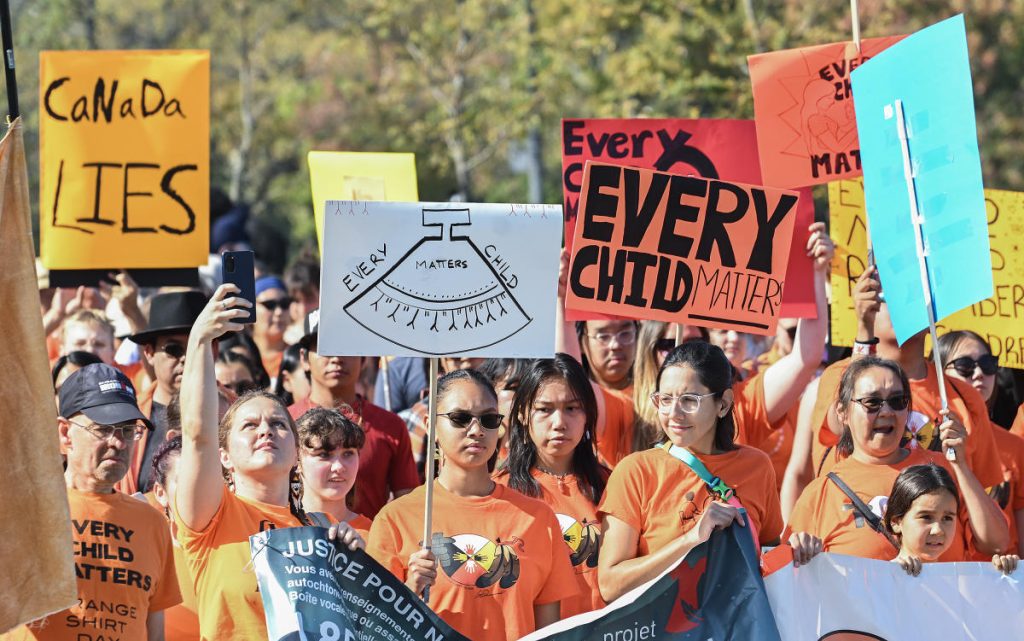A First Nations leader and experts on Indigenous history and culture are using the National Day for Truth and Reconciliation to remind people that Canada has a long way to go in making things right with the country’s Aboriginal people, especially when it comes to education and healthcare. September 30 honours the children who died while being forced to attend church-run and government-funded residential schools, those who survived, as well as the families and communities still affected by the lasting trauma. Serpent River First Nations native and Ontario’s Indigenous Trustees Council chair Elaine Johnston took this opportunity to wind back time and send Canadians a reminder on how the youth in her community continues to face instances of discrimination and racism, which presumably many might ignore as the ghosts of the country’s troubled past with not much relevance to modern-day Canada.
Johnston shared an example of her great nephew being bullied in school for having long hair, which led to the school asking him to leave instead of addressing the bully. These ongoing issues within Canadian schools serve as a reminder that more work is needed before these matters can be resolved for good. She believes that Canada has a long way to go before true reconciliation can be achieved with the Indigenous populations of the country. Jaris Swidrovich, an Indigenous Peoples’ health expert, agrees that anti-Indigenous racism continues to be a significant issue that can be fatal, emphasizing the importance of education in helping the country move towards reconciliation.
Indigenous self-governance expert John Burrows acknowledges that while progress has been made in Canadian communities in handling First Nations issues better than in the past, there is still a long way to go before full reconciliation is achieved. He emphasizes that understanding is a key first step in the reconciliation process and that involvement from various stakeholders is necessary for progress to continue. Mark McGowan, a history expert, expresses discomfort with the word reconciliation, noting that conciliation is necessary before true reconciliation can occur. While efforts have been made by various stakeholders, more recognition and acknowledgment of the damage caused by violated treaties and discrimination in Canada are required.
Efforts to improve reconciliation include Canadian physicians formally apologizing for causing harm to Indigenous People and committing to rectifying their wrongs. Despite some improvements since the publication of the Truth and Reconciliation Commission’s Calls to Action in 2015, true reconciliation is still a ways away, according to Indigenous Peoples’ health expert Jaris Swidrovich. He notes that zero Calls to Action were completed in 2023, highlighting the need for continued efforts and progress towards reconciliation. While some progress has been made, there is still much work to be done to address the systemic issues and historical injustices faced by Indigenous Peoples in Canada.


